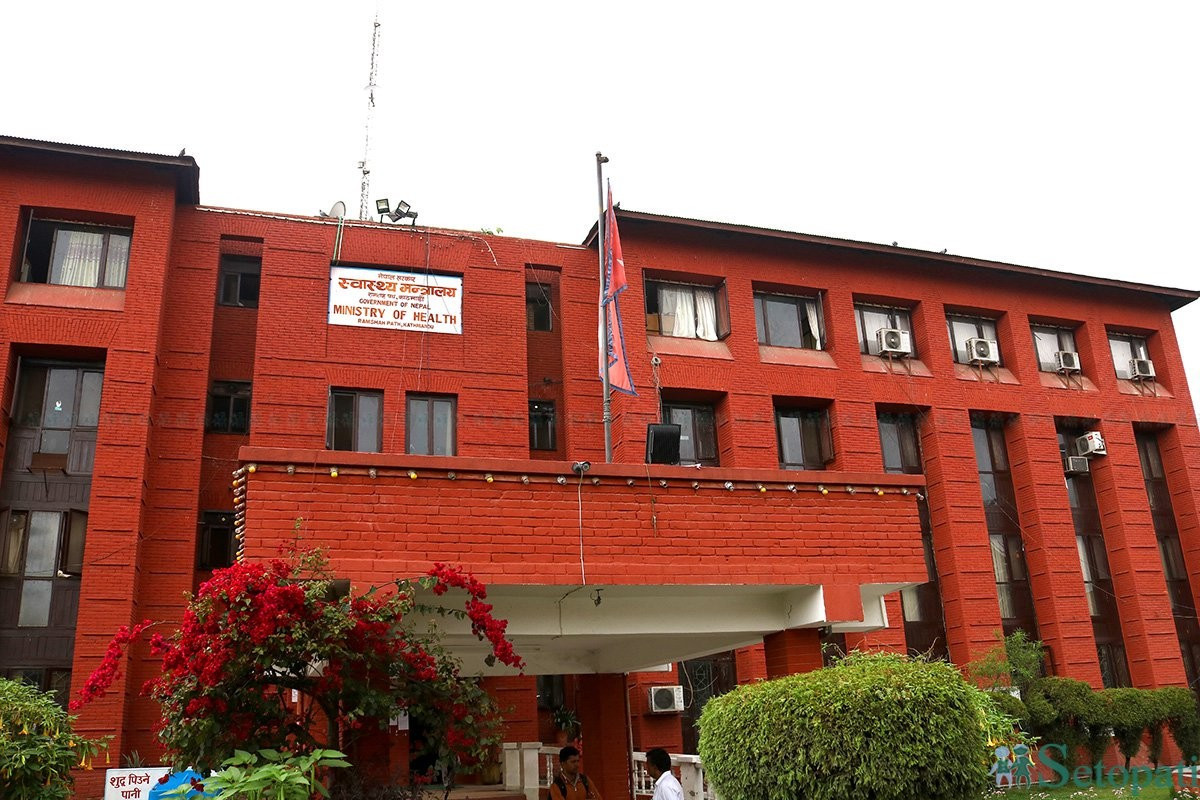The government seems bent on undercounting both cases and death toll of COVID-19.
The Health Ministry on Wednesday has instructed to not test dead persons for COVID-19 even if suspected to be infected amidst reports that it is also preparing to stop testing of asymptomatic persons.
"Do exercise caution in managing the dead body and make arrangements for keeping those who have come in contact with the person who dies due to suspected infection. But don’t extract sample from the dead body and test," Health Ministry Spokesperson Dr Jageshwore Gautam said informing about the decision of incident command system under the ministry.
A significant proportion of 379 COVID-19 deaths has been confirmed posthumously with samples extracted after death of persons with COVID-like symptoms and positive result arriving later.
The decision comes amidst the government's efforts to try to undercount both the death toll and cases of COVID-19.
Prime Minister (PM) KP Sharma Oli, who has been downplaying the virus right from the beginning, has repeatedly stated that the government is counting all the COVID-19 deaths only because the World Health Organization (WHO) protocol requires so and pointing that most of the dead persons have comorbidities.
The authorities until now were at least testing all the suspected deaths despite the government not expanding the scope of PCR testing. This latest decision is expected to lead to omission of many COVID-19 deaths thereby compromising the government's ability to handle the pandemic with the help of accurate data.
The decision has come decision comes hot on the heels of reports that the ministry is preparing to test only symptomatic persons for COVID-19 concluding that not testing asymptomatic persons does not make any difference now.
Deputy Spokesperson at the ministry Dr Samir Adhikari confirmed with Setopati on Tuesday that the ministry has discussed along the line but expressed ignorance about whether the proposal has been sent to the Cabinet. "The ministry believes that only symptomatic persons should be tested and not testing asymptomatic ones does not make difference, but people should remain n quarantine."
The decision, if taken, risks increasing the spread of already surging infection as the disease can be spread even if the infected persons are asymptomatic. The government aims to tackle that by increasing quarantine of persons suspected of being infected. But it will be very difficult to check spread that way as many who needs to be quarantined after exposure to asymptomatic patients will not know they have been exposed to infected persons in lack of testing of asymptomatic persons.

